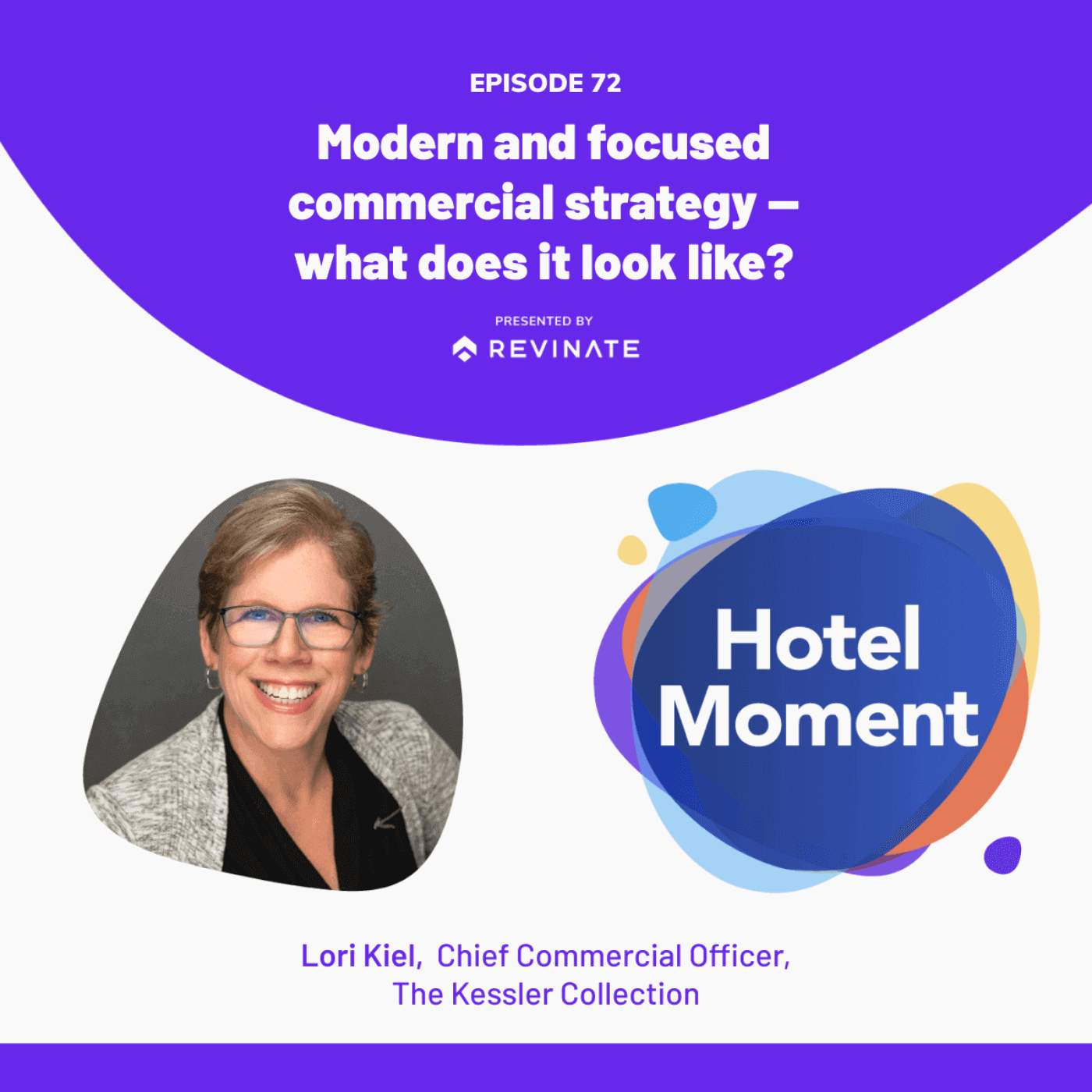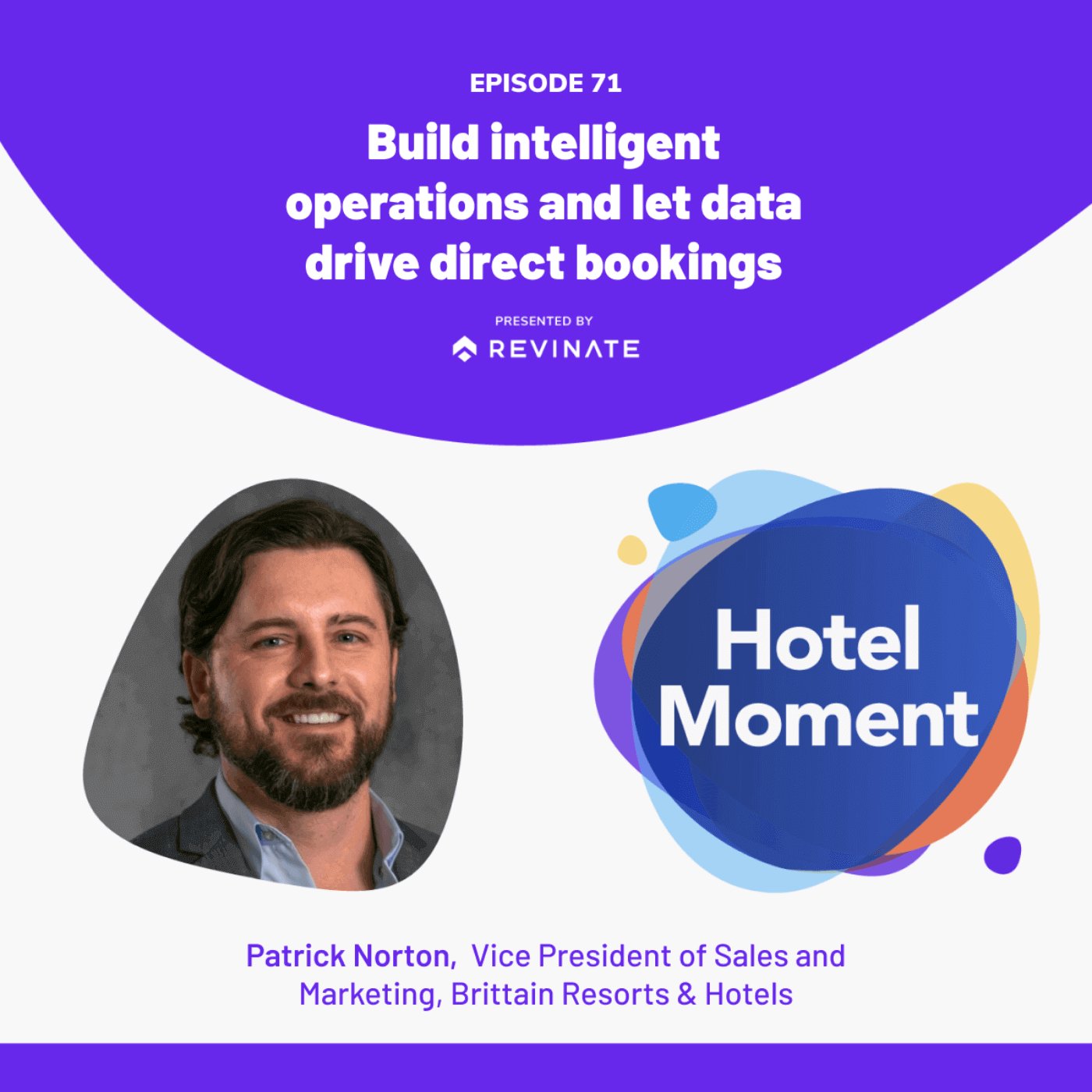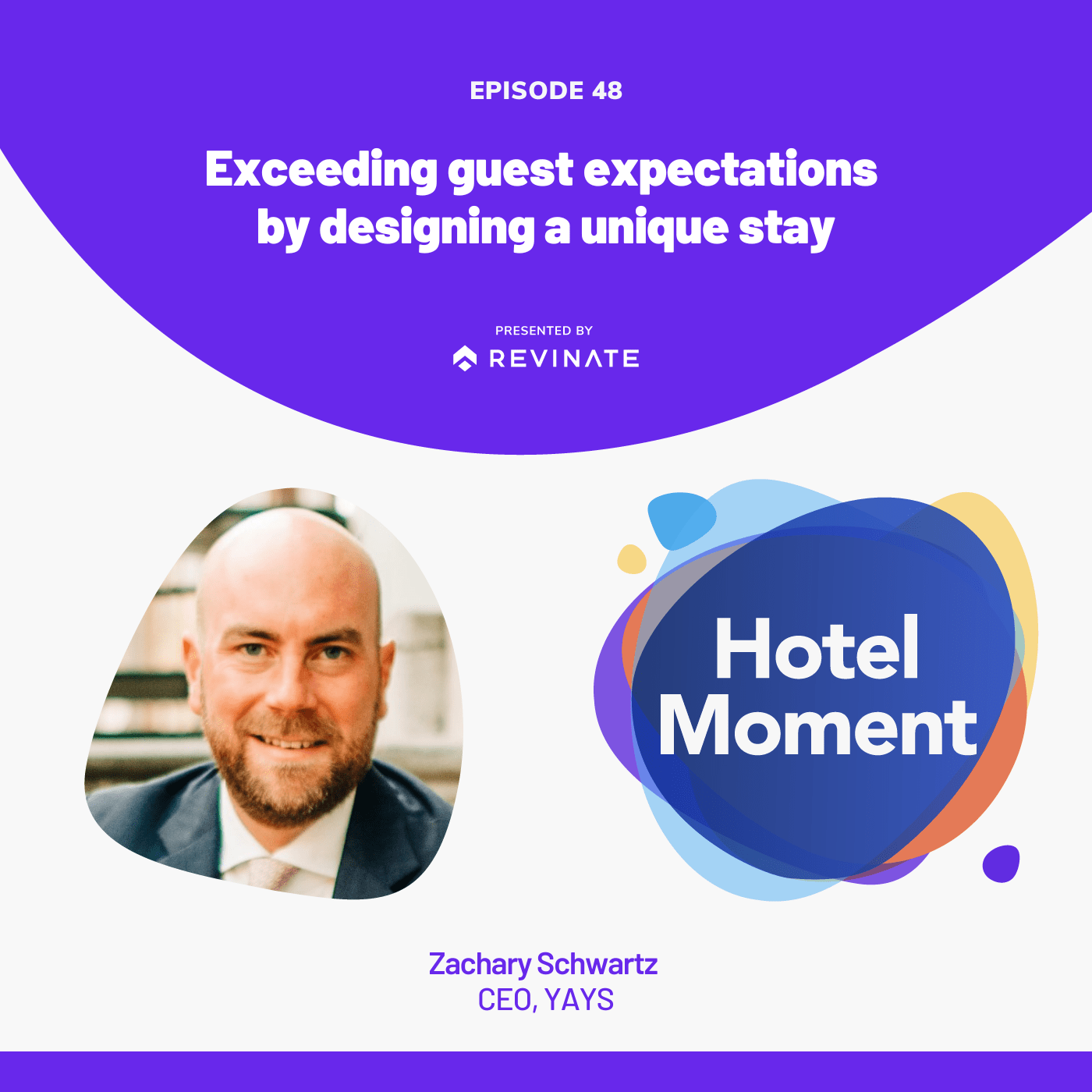

The Hotel Moment podcast — episode 48
Exceeding guest expectations by designing a unique stay
This week on the Hotel Moment podcast, Karen Stephens, Revinate’s CRO, and Zachary Schwartz, CEO of YAYS, explore how innovation in hospitality can help you better understand what kind of stays your guests are looking for and how travel trends impact guest expectations. You’ll also learn about what an “aparthotel” is — and why it’s an influential concept for the hospitality industry.
Tune in for a dynamic conversation that will help you elevate your guest experience.

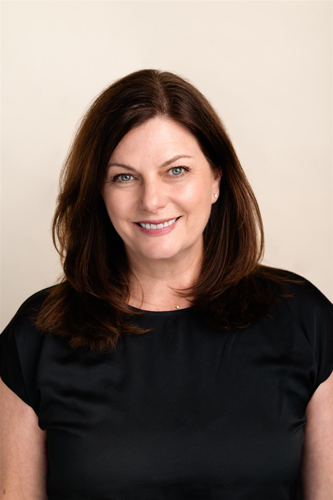
Meet your host
Karen Stephens is Revinate’s Chief Revenue Officer and runs the sales, marketing, and customer success teams. She has more than 20 years of experience in the industry alone.
On the Hotel Moment podcast, Karen speaks with leaders to draw out their experiences and insights. She is also a Francophile and Prof K — a coach, a mentor, a guide to the people who work with her.
Now Playing
Transcript
Karen Stephens: Hello and welcome everyone to the Hotel Moment podcast. I am your host, Karen Stephens. Every week on this podcast we talk to industry experts about the trends and goings on within the hospitality industry, and I am very excited to be joined today by Zach Schwartz, who is the CEO of YAYS.
Welcome, Zach.
Zachary Schwartz: Thank you for having me Karen. Good to be here.
Karen Stephens: Absolutely. You know, I’m really excited to have you on the show because we speak to a lot of hoteliers and vendors in the space, but you really are in a category of your own, which is so cool. So, um, YAYS deals with aparthotels. So, that’s a service department play, and I’m very excited to dig in on that model and the guest experience. And, um, it’s a, it’s a little bit different than other things we see out there, so it’s really exciting to have you on the show.
Zachary Schwartz: Yeah, definitely. It’s a hot space at the moment and we use those two words interchangeably aparthotel and service departments with a few nuances, which we can get into, uh, later on. But, uh, yeah, pleasure to, to share my experience in the space.
Karen Stephens: Excellent. Okay, so let’s get started with a few questions I ask all of my guests.
I’ve got five questions just to warm us up, and give us a little bit more of an idea about who you are. So question number one, when did you start work in the hospitality industry, and do you remember your first day on the job?
Zachary Schwartz: Yeah, absolutely. I guess, um, I was 15. I was, uh, working in a full-service Marriott as a busboy.
Um, it was, uh, a Marriott Hotel with a very popular restaurant in suburban Massachusetts. And the first day really stood out to me, I guess, because of, uh, the cast of characters that I met. Um, you know, my new coworkers. Um, they were of all ages, from all walks of life. Um, but it was clear and shown through that they shared a common passion to serve, uh, which I’m sure was instilled through that famous Marriott, uh, hospitality service culture. And so, you know, on that first day, the, the myth and all the things I’d heard about the company, um, you know, became a reality. And it really started my personal, uh, love affair with, with the industry.
Karen Stephens: That’s great. Yeah, Marriott, they are renowned for their training program, so.
Zachary Schwartz: Indeed. It exists. I can, I can attest to that.
Karen Stephens: It’s a big book I heard.
Alright, so the second question. What has been the most uplifting moment in your career so far?
Zachary Schwartz: I guess, um, along those same veins, and it came later on, a couple years later, uh, I don’t think I was 15 when it happened, but, uh, maybe in my early twenties and I had the opportunity to, to meet Mr. Marriott himself. Um, it was, uh, really an uplifting experience to see the big, the big boss. Um, a guy that cared enough to, to come around and visit all of his properties, and to meet the teams that, that ran those properties, um, and represented the company. In fact, on the day of his visit, the managing director of our property was, was sick. And so, I had the opportunity to, to lead the tour, um, again, I think it was 20, 22 years old and I was leading Mr. Marriott around the property. And, um, what really came through was the fact that, um, he didn’t treat me any differently than he would’ve the, the managing director. And so, that feeling of respect is something that, that stood with me for a long time.
Karen Stephens: That’s cool Mr. Marriott. I love it. Uh, alright, number three. What is the most striking experience so far for you personally, in terms of a food experience, a holiday, a stay somewhere? So what’s, I guess, the best vacation or food experience?
Zachary Schwartz: Yeah. So beyond my day job, I guess in the, the service department space, I, I’m personally, uh, a big fan of the, the sort of the old school independent hotels, the Leading Hotels of the World, um, and sort of their commitment, uh, to, to remaining special and unique, uh, and creating those, those really wow, wow moments.
Um, and so I was fortunate enough to stay in one of these independent, uh, Leading Hotels, um, on a recent ski holiday in Italy. I think it was, uh, just before the pandemic a few years ago now. Um, and, uh, to wake up on the, on the, on the first morning and to hear that my skis overnight had been brought up the mountain and we’re sitting in a, a warming locker, um, at the, at the base lodge, um, was a moment that, uh, probably make me a lifetime customer. Um, and that ski butler service is not something I’ve, I’ve seen a lot of places, so it was, uh, it was quite, um, quite unique and special. And just reaffirms that there are so many experiences, um, that, that, that people can have, uh, and people are looking for experiences more and more as they travel.
Karen Stephens: Yeah we really think, you know, when you talk about loyalty, you’re talking about, you’re talking about guest experience. You’re talking about having an amazing stay and something that sticks with you forever. And I think you said it right there.
You’re gonna, you’re customer for life, uh, because of going the extra mile. Also, shout out to Leading Hotels of the World. It’s a Revinate customer, so yay. Yay for independent hotels.
Zachary Schwartz: Started my career with them. And I, I still travel, when I travel. I always try to stay at Leading wherever I’m going. So, um, good to hear that they’re a customer as well.
Karen Stephens: Well, yeah. Beautiful, beautiful hotels. Okay, next question. Have you met any celebrities while you were in the trenches? Apart from Mr. Marriott, of course. Any other celebrities that come to mind?
Zachary Schwartz: Yeah, a few. And I think if you work in, in operations, it’s, it’s one of the things that, that, that does happen.
Um, I recall meeting a famous golfer. That was probably the most thrilling thing for me. Um, you know, the, the challenges when you’re in, in the trenches as you call it, um, you know, you’re focused on delivering the service and the, the guest experience that’s, that the expectation is there for. And, and so you can’t really ask for, for golf tips as much as I, I want to do that.
Um, but, but it is, but it is a perk of the industry. Um, there’s amazing people. Some, you know, more interesting and, and willing to engage than others. And not always the most interesting ones are not always the, the celebrities, but the people that, you know, want to have that conversation and want, want to open up and take recommendations or, uh, have suggestions about things that, that they can do, places to visit, um, especially if it’s, it’s in a city that you know well.
Um, you know, I’ve been corporate for the last 15 years, so I don’t, I don’t get to do that as often anymore, but, um, certainly recall some great celebrity moments from early in my career.
Karen Stephens: That’s great. Okay, last question. Who are the women at work you have been most inspired by?
Zachary Schwartz: My first two bosses. And it really had nothing, nothing to do with gender, but more about their, you know, dedication, uh, and talent for the job.
Um, one was an amazing strategist and sat on the executive committee of the company that I was working for, and recall that, uh, at an early, at an early age, again, in my, in my twenties, um, they, she brought me to, uh, every board meeting. Uh, as a kid, straight outta out of college, I thought that was really cool to have that faith in, in me. Uh, and I’ll never forget it. And the other was a leading marketeer. Um, and you know, I’ve spent my career modeling, um, you know, the things that they did both in strategy and, and marketing. Um, so I have a lot of respect, uh, for both of my first two bosses who were female.
Karen Stephens: Both women and thanks for saying, didn’t really, their skillset had nothing to do with them being women. But it’s wonderful that, you know, they were inspirational as leaders That’s right.
That’s great. Okay. Well, you’ve hit on your background a little bit. You know, you started in hospitality, and I also understand you, you studied hospitality management at Cornell, uh, before you kind of shifted. So you, you really have come up through the ranks, um, in, in traditional hospitality. So take me through how it kind of transitioned to the position you’re in now and the space that you’re in now.
Zachary Schwartz: Yeah, sure. No, I, I still consider myself a hospitality guy, even though I spent, um, a lot of time and effort, uh, and, and career, uh, moves that, that transitioned me more to the, the real estate side of the business. But, um, you know, I started off, um, with the hotel management program, which was, you know, gaining the fundamentals of, um, you know, of business, but with hospitality as the model. Um, so business principles within a really great industry. That’s what I liked about the program. And then started on the brand side of the business and decided that, um, eventually I wanted to end up in real estate, um, buying and selling hotels, which I eventually did. So first started off by moving into consulting and learning, you know, basics around feasibility and valuation, which are the, you know, principles behind the real estate side.
Then, a master’s in real estate, which I did back, back in the US and, uh, Johns Hopkins. And then moving into, um, the private equity world and into acquisitions for hotels, uh, portfolios and single assets as well as, um, you know, loan portfolios back, backed by hotels. And then sort of with that private equity experience was able to sort of, um, transition into a portfolio private equity backed portfolio company which is where I am now. And sort of lead the, the platform in terms of what we’re trying to do for, um, uh, the brand that we have, which is the service department concept. Uh, where we have, uh, 16 properties currently, uh, across 4, uh, 4 cities and 3 different countries, uh, here in Europe. So Benelux, Belgium, the Netherlands, and France are the countries where we, where we operate the concept, and to really create an operating platform, um, together with real estate partners. So we’re asset-light. We don’t own the real estate. Um, but we are building an operating platform, and have a long track record. The company’s been around since 2008. Um, and so we’ve grown organically over time and we’re looking to turbocharge that, that growth story now, by expanding into several new markets.
We’ll be opening in Spain and Germany coming soon. So some exciting, um, sort of growth plans for the company, but that, that’s sort of the, the long and short of the transition from hotel guy to real estate guy to service department guy.
Karen Stephens: Yeah. That’s great. So tell us a little bit more, it’s, it’s a fascinating concept.
So tell us a little bit more about, you know, the guest experience for that kind of, I know that there’s the, the real estate side, and the asset management side. So what about, what is your guest mix? Who’s staying in these apartments? What’s cool about them? What’s the appeal for the customer?
Zachary Schwartz: Anyone that wants a local experience and, and that’s why we, we really love the, the concept of aparthotel and service departments because it lets somebody live like a local would.
So you’re, you’re stepping into not a traditional hotel room, but really an apartment with all of those home comforts that you would expect if you were living in that city. And then through, uh, our insiders, which are, you know, our onsite staff, were able to facilitate experiences in the neighborhood. And so rather than getting, uh, a traditional hotel experience, you’re getting an experience as if you were living in the city.
And that gives our customers a lot of flexibility, um, to stay with us for a short time, for a night or two, um, or for a much longer period, uh, as some of our relocation business does, as some of our corporates do. I mean, these are apartments that are fully equipped. They’re spacious and they’re comfortable. And so if you wanted to stay with us for 3 months or 6 months, which is, you know, a trend, uh, with people’s ability to, to work from anywhere, um, that’s a lot of the customers that we’re seeing.
Uh, so a mix of long stay relocation, business, project-based corporate business, and then the leisure, um, customer really loves the concept. If you think about traveling with kids or traveling in a group, the ability to have an apartment, uh, which we have studio 1 and 2 bedroom apartments, the ability to, to stay in a larger apartment with separate bedrooms, uh, fosters that travel together concept that we talk a lot about as an organization. Where, um, people would rather stay together in one apartment than to rent 2 separate hotel rooms just by example.
Karen Stephens: Right, right. You know, it’s so funny when the pandemic hit, and we went completely remote. We had a number of people on our team, engineers and sales guys who would like, take off and go to Mexico for, you know, or San Diego and they’d rent an apartment. They do exactly what you’re talking about. Rent an apartment, uh, and all work together there. Because, you know, you know, and of course they were careful. It was Covid. But, um, so it was, it is interesting. Um, I’m wondering how you fared during the pandemic. I know that you’ve been, you know, 2015 correct, for YAYS itself. How did you fare during the pandemic compared to the rest of the hospitality industry because of your model?
Zachary Schwartz: Well, I think that trend that you picked up on there Karen really came through not only in sort of, um, uh, resort destinations, but also in urban, uh, locations, like the ones where we operate. Amsterdam, Paris, um, people were, uh, willing to still travel if they could control the environment. Yeah. And if they could work from that location. And so with an apartment, um, that’s something that, uh, that we’re able to, to facilitate. Um, that work, work from anywhere, concept. Stay for a short period. Stay for a long period. And so we pivoted during the pandemic, moving away from sort of that transient business that we were, um, you know, had a, a greater proportion of pre pandemic, and into longer stay customers that were coming and staying with us for a few months. even professionals, um, that were looking for an alternative to, to renting in the market, and students. And so we looked for demand where the demand was during the pandemic, and because of our apartment concept, that led us, uh, weather the storm, so to speak. And we were able to, I guess, out-perform.
If you look at the statistics and we dig a lot into numbers at YAYS. If you look at the statistics, we were outperforming hotels by at least 2 times in terms of the occupancy and rates that we were achieving during the pandemic. And then as the demand started to come back post-pandemic, we were able to shift back to the higher-rated transient business that, that really was driving the business pre-pandemic.
And so the recovery has been really strong for us with a, a 20% growth, uh, this summer. The best summer we’ve had as a, as an organization in 15 years. But 20% over the pre-pandemic level on a same-store basis. And so I think it’s impressive to see how quickly and how resilient this industry is, uh, and to be able to capture that, that demand with the flexibility in the product is something that we’re really excited about with the concept.
Karen Stephens: Yeah, no, that, that’s great. And, and maybe you can just tell me from my own knowledge. I think I know the answer. But obviously with Airbnb you’ve got a bunch of different owners, and Airbnb’s really just a platform that allows you to book and, and interface with the, with the homeowner. But the homeowner is controlling the, the guest experience, the cleanliness, all of that. So how is, how is YAYS different in terms of what the work that you do for your owners on behalf of your guests and those kinds of things?
Zachary Schwartz: Yeah. Put, put simply, it’s, it’s brand standards. So when you book with a YAYS, you get that apartment, uh, product. But you get it alongside a set of standards.
Um, and so we have 2 concepts. One is the aparthotel. I mentioned earlier where we have an onsite team, our insiders, so you’re welcomed. Um, and uh, and we help you to, to discover, uh, the things in, in the neighborhood. Uh, to create that guest experience and that level of customer service like you would have in a hotel, but in an apartment context.
And then we have, uh, our service department context, which is called By YAYS, which are, uh, more independent apartments where you access. iIt’s digital. You access the apartment, uh, through a key on your phone, and you have interaction with our team over WhatsApp or a WhatsApp equivalent. Uh, and so if you need something during your stay, you can still reach us.
And so there is that level of service, but it’s not a face-to-face experience. Um, so so those are the two things that, that we, that we have as, as, as, as. That’s how we differentiate, I guess, our, our concept. And, uh, and so people have a choice really when they stay with us, if they want that experience, um, more akin to a hotel or more akin to an Airbnb.
But the interesting thing about Airbnb is that, it’s everything you said Karen, but it’s also become a very powerful distribution platform. And so we’re actually listed on Airbnb.
Karen Stephens: Yeah.
Zachary Schwartz: And if you wanna stay at a YAYS, you can book us through Airbnb. We prefer you book us direct, but we’re on there alongside all of these independently owned apartments. But what you get with YAYS is that sort of that brand standard where you know that, um, it’s being professionally managed. And many Airbnb apartments are also professionally managed. But with YAYS, the whole concept and the, the brand ethos about the neighborhood, our insiders. There’s a formula there that you’re buying into and, uh, I think a lot of people, uh, will choose to stay with simply for, for that reason. They want the apartment concept, but they want it with a touch of service, and they want it with a certain level of standard that’s guaranteed.
Karen Stephens: Yeah. It just seems like the perfect marriage between traditional hospitality and the Airbnb experience. You know, it really…
Zachary Schwartz: We like to think we sit right there in the middle and, and that there’s a big and growing base of, uh, of customers that are, that are looking for exactly that. And it, you know, the, the, this idea of aparthotel and service department, you know, it’s growing in popularity. It’s, it’s a hot sector. It’s popular with, as popular with investors as it is with customers. Um, but uh, it still remains very underrepresented, particularly here in Europe. Where, you know, if you look at all of the lodging stock across Europe, which every, every type of hospitality product, but, but primarily hotels. Uh, service departments only represent less than, still less than 10% of the overall stock. So we think there’s a lot of room for growth, and we think the model that we have in cities like Amsterdam and Paris, and now Antwerp and Hague, can be replicated across many different markets. That’s, uh, that’s what we’re trying to do.
Karen Stephens: Yeah, that’s exciting. That just screams huge potential. If there’s only 10% that’s been penetrated. And I think you, I think you’ve hit it on the head in terms of the, the new trend coming out of Covid. People were already starting to do this, but now it’s really with the flexibility. I work from home right now, it’s like, “oh, I would love the idea of going and working in Barcelona for five weeks or , you know, or Paris” or something.
Zachary Schwartz: No, it’s a great, it’s a great, uh, you know, the internet has, has opened up, uh, the world. I think for that type of, you know, this concept around bleisure as well, which we talk a lot about over here, uh, in Europe, which is that people will travel, uh, during the week for work, and then be joined by their family on the weekend. And so they’re able to do fewer trips, because I think that’s also a trend coming out of the pandemic.
Karen Stephens: Yes.
Zachary Schwartz: Fewer trips. More, more, uh, uh, let’s call them productive trips, with a longer length of stay, and looking for a higher quality experience, um, rather than, you know, these short, overnight trips. Uh, and so the product works perfectly for that. Because, Uh, you can, you can use it like you would, uh, uh, uh, a workspace during the week, and then be joined and have the extra bedroom and the extra space with the family on the weekend. So we really like it for that use as well.
Karen Stephens: Yeah, and the consistency, I think that that’s, that’s the part of hospitality that I think can sometimes be missing. Uh, yeah. You know, if you know that there’s a brand standard and you know, “okay, I’ve already stayed in one of these, in this location. If I go to another one, I know that it’s gonna be clean, there’s gonna be good advice, I’m gonna get that experience.”
So I love that. Cause sometimes it’s really, you know, throwing a dart against a board. So.
Zachary Schwartz: Yeah, no absolutely, we’re focused on all of those things and, uh, and, and it’s what the customer, it’s what a lot of customers want. Let’s, let’s put it that way.
Karen Stephens: Yeah, absolutely. All right. So we’re coming to the end of 2022. I can’t believe it. We are closing in. What are you looking forward to, uh, in 2023? How are you feeling about the business and the prospects and industry?
Zachary Schwartz: Well, I joined, I joined the business in March of 21, so right in the midst of the pandemic. So last year was a lot about, um, you know, uh, managing through the pandemic and, and building the platform.
So we spent a lot of, um, and we had the time to do it, to, to focus on upgrading our technology, to investing in our product, to doing a rebranding, to bringing in some new team members in our corporate offices, um, to finding new real estate partners. And then importantly, we spent, um, about 6 months working with our design and architecture, uh, partners to redesign the concept for rollout. Meaning, “where could we innovate further?” We had a great starting point with the concept around apartments, but “how could we use, uh, space in a, in a different way, more flexible? How could we create the highest return on investment for real estate owners?” And uh, and what we came up with was a flexible solution with a studio uh, alongside, uh, one of our 1 bedrooms. That allowed us to, through a connecting wall, and we have connecting doors, uh, in, in the hotel business since for, for many decades. But really a retractable wall that would create a different kind of guest experience in an apartment context where you have a contiguous living space, uh, between apartments that allow you to work together, dine together. And to be able to sell that 1 bedroom and that studio as a 1 bedroom and studio during the week, but then on the weekend, uh, be able to, to sell it as a two-bedroom, sleeping up to 6.
With this concept and this innovation, we’re now able to do that. And so we’re in the process of starting to roll that out. We have a mockup room here in Amsterdam that we’re able to share with, uh, with our real estate partners who are interested in working with YAYS. And really, uh, what it’s gonna allow us to do in 2023, which is what you asked about, is start to put this product out into the market.
And we do see it as a competitive advantage. It’s certainly a revenue manager’s dream. The idea of selling the room as a studio or 1 bedroom to corporates during the week and then to families and groups as a two-bedroom on the weekend is really something that’s unique in the marketplace. And what took a long time was getting the design right from a fire safety standpoint to get it certified also from an acoustic standpoint, to ensure that this wall acted like a wall should, and that just because it was retractable, that it was also quite seamless in terms of, “I don’t know that I’m in a connecting, a connecting room here, but if it’s used as a connecting room, I certainly know it because, wow. How big does a space open up into this huge two-bedroom apartment?” That, uh, we think is a selling point that, you know, this idea of two-bedroom apartments, we see a huge amount of demand, and a very low representation even within the apartment.
And many of the markets where we’re looking, there simply just isn’t the stock of two-bedroom apartments. And any family, um, will know that a two-bedroom apartment is an ideal, um, you know, travel solution for, you know, families that want to be together, but also want that separation.
Karen Stephens: Right. Absolutely. And you know, I love it.
This is like a blending of WeWork during the week. It’s a blending of the WeWork. Cause you know, you, you wanna go work remote. “I’m gonna go to Barcelona and work remote, but I also just don’t wanna sip on myself all day long.” So I love that.
Zachary Schwartz: It’s, it’s, yeah, it’s definitely offers, uh, the, the best of both worlds.
Karen Stephens: Yeah, that is fantastic. Wow, that’s exciting. And the other thing that, that I picked up on when you talked about 2021, uh, you know, and I talked to a lot of different people on this podcast and it’s really interesting to see, you know, the companies that have really survived and thrived through the pandemic took that opportunity, instead of panicking and freaking out, to innovate and figure out how they were gonna come back better, stronger, faster. Um, so they invested. They invested in innovation, um, and made the leap. And now they are poised, like YAYS is poised to really, you know, take it forward, um, in 2023, which hopefully the trend keeps going that we’re opening up and things are good, but it’s exciting.
Zachary Schwartz: We certainly made the most of the, the downtime. And it benefited us when, you know, uh, this summer came around and we had some of the highest occupancies we’ve ever experienced. Having the technology, the digital solutions, the keyless entry, which were all things that we implemented during 2021. Uh, really paid off in terms of, uh, you know, all the things that you said about becoming more efficient, more strategic.
Um, so we used the time. Yeah, to, to, to the advantage of, uh, the company and, and, and the recovery that we’re now in.
Karen Stephens: That’s so exciting. Okay. Can you remind everybody again where you’re in the market today and then when you’re, where you’re expanding in the future? You said it at the top, but I just wanna make sure everybody knows where to find you.
Zachary Schwartz: Home base is Amsterdam. We’ve been here since, uh, with, started with 1 apartment in the Central Canal Belt in 2005. The company was officially formed in 2000. We still have our largest presence of, uh, of properties, um, here in Amsterdam, in great locations, in fun and exciting neighborhoods in each one, slightly different historic buildings, uh, newer buildings, um, and, uh, and so in Amsterdam, uh, you can find us.
And then we’ve also opened in the Hague here in the Netherlands. We opened, uh, very recently this year, uh, with our largest property right in the center of Antwerp, and we’re also in Paris in 4 different locations in, in Paris. And in terms of growth markets, certainly the home markets, so the Netherlands, Belgium, France, and then expanding actively into Germany, uh, where we’re hoping to, to, uh, open, uh, a new property in 2023. And then, uh, into Spain.
we’re also opening, uh, our new property in 2023. So those are the areas where we currently operate in some of the areas where we’re focused on.
Karen Stephens: Okay. That’s great. And if a traveler, if a consumer wants to find you, what’s the website?
Zachary Schwartz: Easy as yays.com. So it’s Y-A-Y-S.com.
Karen Stephens: Dot com. Great. And what about investors and that kind of thing?
When you, when you look at.
Zachary Schwartz: So there is a section on the website for development and there’s, uh, a bunch of information about our value proposition. Why, why, uh, an investor would work with us. And then there’s, uh, an opportunity to reach out directly through the website, uh, to our development team.
Karen Stephens: Okay, there you heard it, you heard it here folks.
It’s YAYS.com. Easy peasy, and it was great to talk to you. Zach. Thank you so much. This has been a really fun conversation. I appreciate the time.
Zachary Schwartz: Yeah, thanks, Karen. Had a great time. Really fun. Have a great afternoon. You too. Bye-Bye.
Media
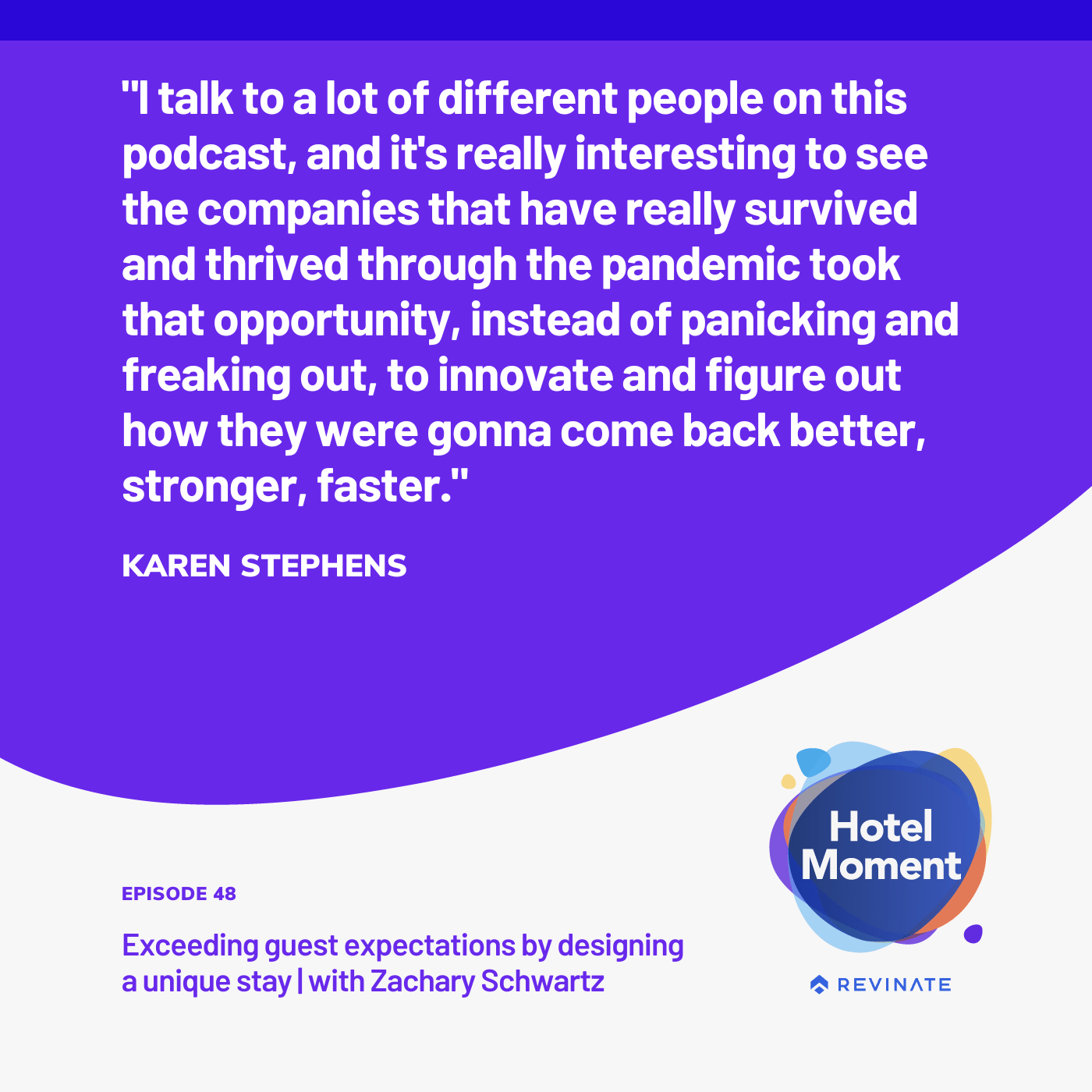
Taking the opportunity to innovate
Understanding the demand
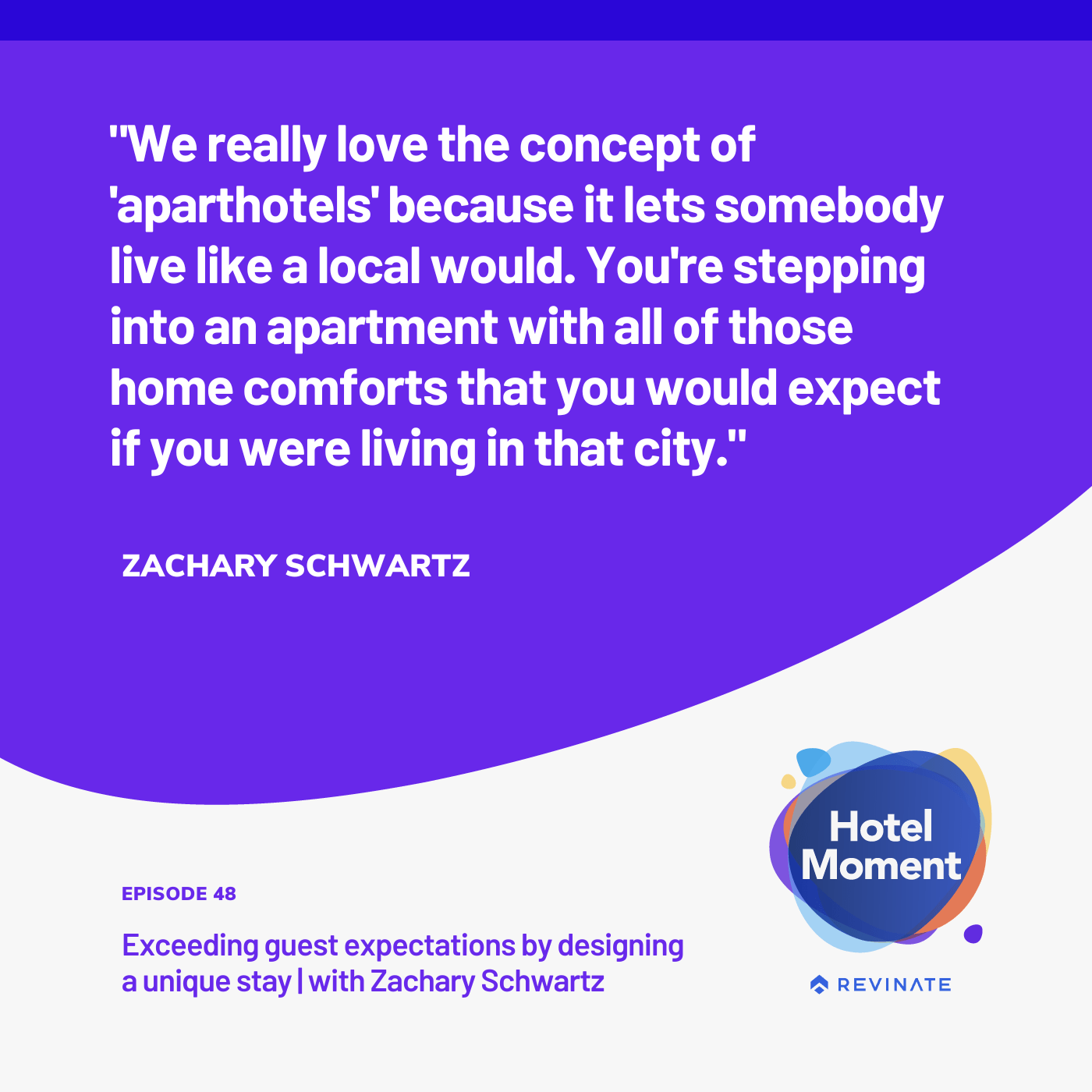
Live like a local
Optimizing for “bleisure” and travel trends
Related episodes


Be the first to know when a new episode drops
This site is protected by reCAPTCHA and the Google Privacy Policy and Terms of Service apply. *Required fields.





